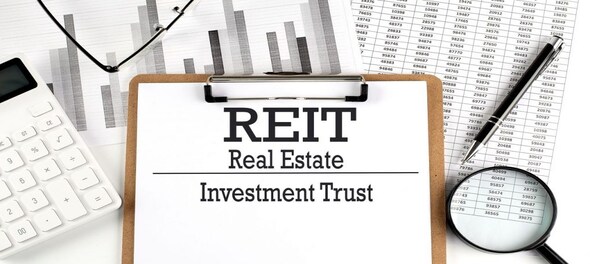
In the budget for 2023, income previously not taxable by Real Estate Investment Trusts (REITs) and Infrastructure Investment Trusts (INvITs) was included in the taxation bracket which was earlier exempted. Taxes will be imposed on unit holders starting April 1, 2024.
Live TV
Loading...
Dual non-taxation of any money distributed by the business trust, i.e., which is exempt in the hands of the trust as well as the unit holder, is not the intent of the special taxation regime applicable to such investment vehicles, the Budget document said.
This basically means that distributions (other than interest, dividend and rent) from a business trust to a unitholder will be taxable under the head 'income from other sources' from FY 2023-24. Repayment of debts and redemption of units would be covered under the proposed change.
SR Patnaik, Partner & Head-Taxation, Cyril Amarchand Mangaldas told CNBC-TV18.com that the tax will be subject to the point to two factors
First the distribution should not be chargeable to tax in the hands of the business trust (under 115UA(2)) and second the sum received on redemption of unit will be reduced by the cost of acquisition of the units.
“Further the issue that is there is that in case a person has given a loan and is receiving repayment of the same, he may be liable to pay tax on the gross amount received by him without deduction of the original amount of loan granted by him,” said Mangaldas.
A REIT is an investment vehicle that owns, operates, and manages income-generating properties for regular returns. In India, REITable properties are primarily commercial properties that generate rental income.
Investing in them is similar to investing in mutual funds or shares. The REITs must be listed on exchanges and traded like securities. Just like shares or mutual funds, small investors can purchase REIT units both on the primary and secondary markets.
According to REIT guidelines, 80 percent of the company's assets must be invested in completed projects, and 20 percent in under-construction projects, equity shares, money market instruments, cash equivalents, and real estate activities. Investors are mandated to receive at least 90 percent of net distributable cash flows twice a year to ensure regular income.
“REITs / InvITs are mandatorily required to distribute their cash surplus upto certain limits as per SEBI regulations on a quarterly basis. The distributions generally consists of interest, dividend or repayment of debt. The law provides for a pass through status or single stage taxation of the receipts. The receipts are either taxed in the hands of the Trust or the unit holders. Not both.
However, repayment of debt was not taxable in the hands of both. This double non-taxation has been addressed. From April 1, 2023 all distribution by a REIT/InvIT representing repayment of debt is taxable as "other income" in the hands of the unit holders,” Ajay Rotti, Partner, Dhruva Advisors told CNBC-TV18.com.
Reacting to the news shares of Embassy Office Parks REIT declined over 4 percent, Mindspace Business Parks REIT shares declined 0.8 percent, Brookfield India REIT shares declined 2.6 percent, IRB InvIT Fund shares declined 0.6 percent and Powergrid InvIT shares declined by nearly 3 percent on the BSE today.
Also read: REITs underperformed on back of rising interest rates, WFH & vacancies in property after COVID
Check out our in-depth Market Coverage, Business News & get real-time Stock Market Updates on CNBC-TV18. Also, Watch our channels CNBC-TV18, CNBC Awaaz and CNBC Bajar Live on-the-go!


Surat polls: Congress moves EC claiming three proposers of party's candidate may have been abducted
Apr 23, 2024 12:59 PM
2024 Lok Sabha Election | How did Rahul Gandhi’s yatras strengthen I.N.D.I.A bloc’s prospects in South
Apr 23, 2024 9:57 AM
Nearly 26,000 teachers lose their job in Bengal — it may be significant turn in the Lok Sabha election
Apr 22, 2024 11:58 PM
Lok Sabha Elections phase 2: Battle of "guarantees" in Karnataka
Apr 22, 2024 11:15 PM

